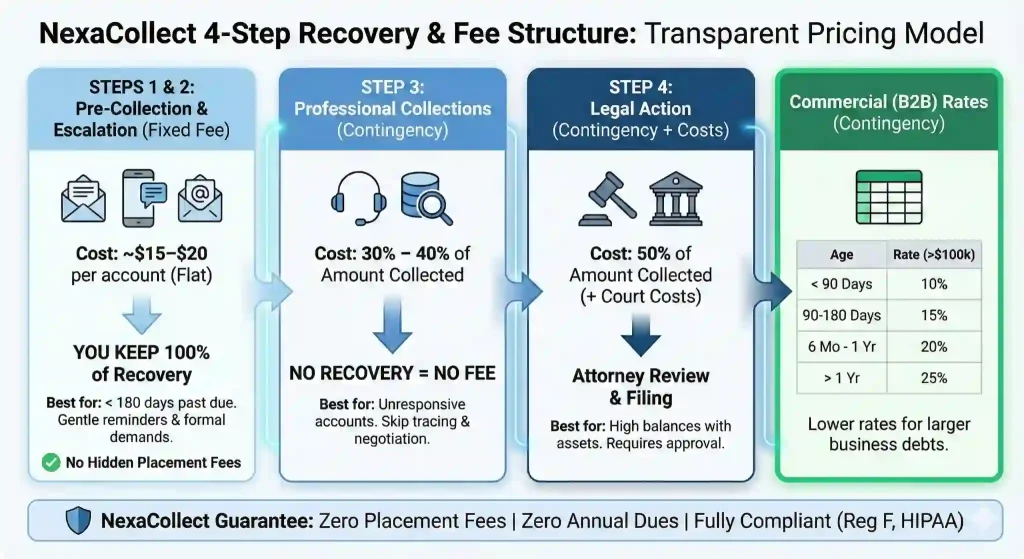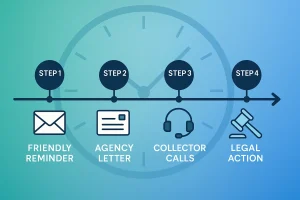Watching only pennies trickle back from thousands in overdue invoices? Low recovery rates aren’t a mystery—they’re a warning sign that something in your collection pipeline is broken and needs a quick fix.
Industry Quick-Take
-
Typical success rate: U.S. agencies recover 20 – 30 % of the dollars placed with them—$20–$30 on every $100.
-
Time kills accounts: Place a balance within 90 days and recovery can double; wait a full year and odds drop below 10 %.
If your current partner lags behind even these modest benchmarks, run through the checklist below before you replace them—or confirm that you definitely should.
| # | What to Ask the Agency | Why It Matters |
|---|---|---|
| 1 | Do you publish live metrics on an online collections portal? | A last-minute scramble for data means they were never tracking performance. |
| 2 | Are you running all scrubs—Change of Address, bankruptcy, litigious-debtor? | Skipping them saves pennies but can lift recovery 5–8 %. |
| 3 | Did you sell me the right tier—collection letters vs. live collection calls? | Letters shine in the first 120 days; older files need live calls and skip tracing. |
| 4 | Can I see sample letters? | Color printing and line-item charges make debtors 17 % more likely to pay. |
| 5 | Show me two call logs from high-balance files. | You should see 5–7 contact attempts in the first month. |
| 6 | What payment channels do you offer—ACH, credit-card, Western Union? | More options = 10 % higher completion. |
| 7 | Is a “Settle-in-Full” policy in place? | Accepting 80–90 % today beats 0 % next year. |
| 8 | Do you handle credit-bureau reporting in line with U.S. debt-collection laws? | Collectors can’t threaten to report, but must tell the truth when asked. |
Could You Be Behind the Low Numbers?
-
Late placements. After twelve months, the probability of recovery sinks below 15 %.
-
Missing documents. Contracts, invoices or service receipts are the collector’s legal ammunition—deliver them within 48 hours of request.
-
Portfolio mix. A cluster of bankruptcies or skip-traced accounts drags any metric down; compare your file to industry averages before placing blame.
Real-World Example
ABC Pediatric Clinic sent $50,000 in 120-day-old co-pays to one of NexaCollect’s vetted partners and recovered $24,500 (49 %) within six months—more than double the 22 % rate they saw with their previous agency.
Ready for Better Results?
NexaCollect has already vetted agencies that post 40–55 % recovery on fresh medical and small-business debt—nearly twice the industry mean. Want an introduction? Contact us for a free, no-obligation referral.



